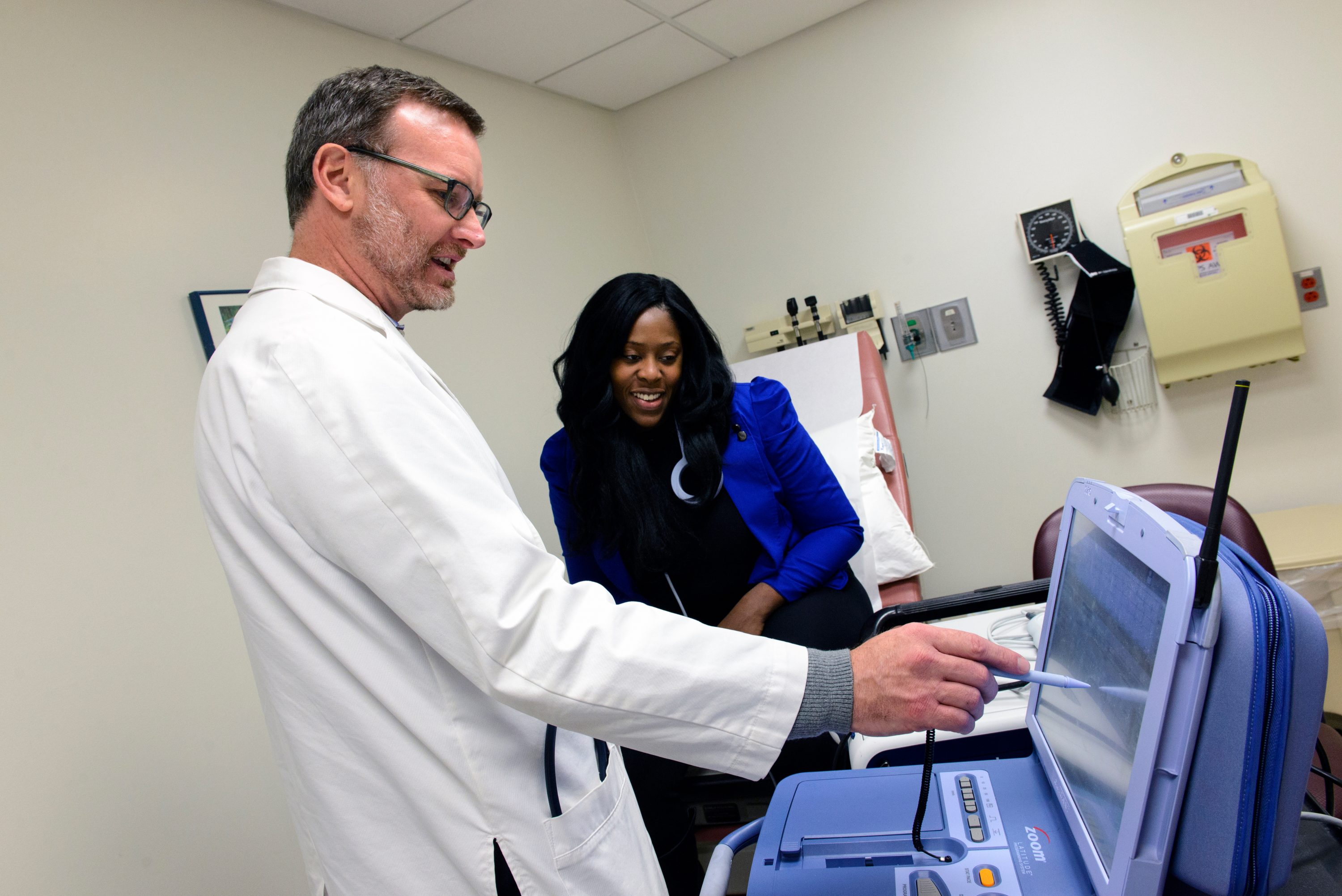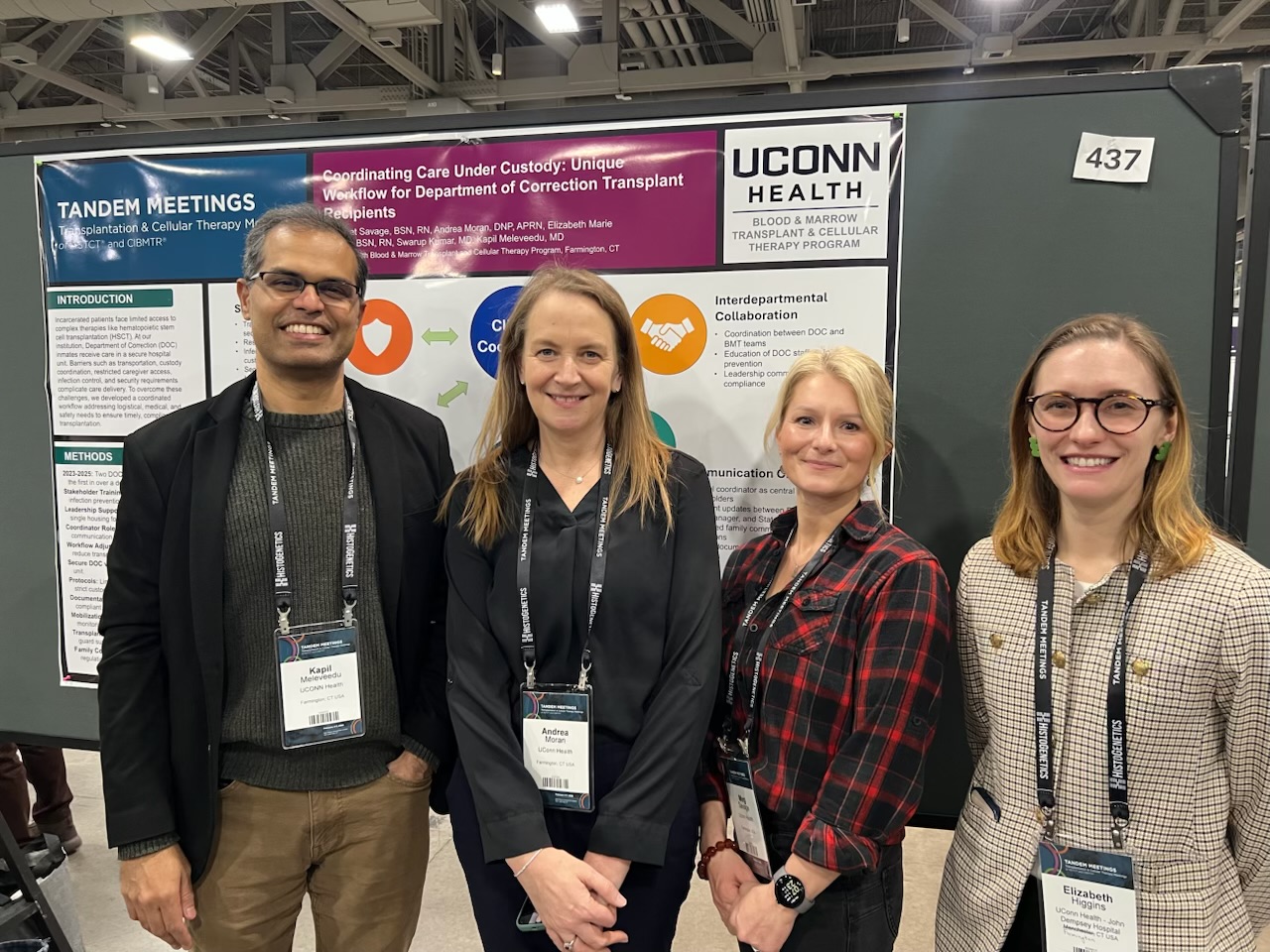
Vanessa Lloyd, 28, was home alone in Hartford with her 2-year-old daughter when she fainted several times. So she called her mother to drive her to the Emergency Department at UConn John Dempsey Hospital.
But as their car pulled up to the ED’s entrance, Lloyd passed out again. Her mom ran into the ED for help, and a team of nurses and UConn Health Fire Department paramedics rushed to the car.
“I was really scared,” recalls Lloyd, who only vaguely remembers the paramedics rolling her into the ED from the car. She figured her fainting was linked to her diagnosis of epilepsy back in 2011, but she was wrong.
While she was in the ED, Lloyd’s heart suddenly stopped.
“UConn saved my life,” she says. “The nurses successfully performed CPR on me and shocked my heart with a defibrillator to restart it. I woke up, and immediately started talking. I recall asking the medical team, ‘What just happened’?”
Her treating physician, Dr. Christopher Vetter of the Emergency Department at UConn John Dempsey Hospital, says Lloyd was lucky to be in the right place at the right time. “This young woman … went into a dangerous ventricular fibrillation arrhythmia, which our nurses immediately recognized, allowing us to defibrillate her heart into normal rhythm.”
Her doctors suspect that Lloyd may never have had epilepsy, because she never experienced epileptic seizures. Instead, heart experts at UConn Health’s Calhoun Cardiology Center believe that Lloyd has Long QT Syndrome, a condition that can cause an abnormal and chaotic rapid heartbeat leading to fainting or even sudden cardiac death. It stems from a genetic predisposition, or may be triggered by certain medications. The fainting spells that people with Long QT syndrome experience often look similar to epilepsy, leading to confusion over the diagnosis. Lloyd is awaiting genetic testing to confirm her diagnosis.
Lloyd was completely surprised that her health was at risk from a dangerous arrhythmia: she works daily in a hospital as a telemetry technician monitoring patients.
“Thank you to everyone at UConn that helped save my life,” she says. “I am so grateful and so very happy – beyond happy.”

While Lloyd was in the hospital recovering, an implantable cardioverter defibrillator (ICD) device was implanted under the skin of her chest using a minimally invasive technique. The device has tiny wires that connect it to her heart.
Dr. Christopher Pickett, her electrophysiologist at the Calhoun Cardiology Center, says the device will help regulate Lloyd’s heartbeat, preventing it from going too slow, the situation in which her heart rhythm might become dangerously chaotic again – and can even restart her heart if it ever suddenly stops again. The technology allows Pickett to monitor her heart rhythms from afar.
Lloyd says the technology not only protects her heart health, but also gives her peace of mind for when she is alone caring for her young daughter.
In recognition of the lifesaving work of the personnel at UConn Health, including nurses Amanda Costello, Sarah Urso, and Erica Gomez, Lloyd nicknamed her monitoring device “Jonathan” after UConn’s Husky mascot.
“I am so thankful to everyone at UConn, so there was no better name,” she says. “No matter where I go, I now have a little piece of UConn inside me keeping my heart beating.”
She advises others, young and old, to take their health very seriously, and to get checked out by a doctor if they feel anything uneasy or abnormal about their body.
Watch Lloyd’s reunion with the nurses and doctors at the ED who saved her life:
To learn more about the Calhoun Cardiology Center at UConn Health, go to health.uconn.edu/cardiology.



